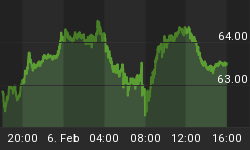Keeping track of the ever mutating bailout debate is becoming increasingly difficult. With the Federal money spigots now thrown wide open, and with no one of influence advising restraint, the only debate is where to direct the torrent. During the past week, the talk began with Detroit and Citigroup, but by Friday had shifted to a massive "stimulus package" to bail out consumers. The early buzz includes some very large figures. But first, a bit of a recap:
On Monday, the $300 billion Citigroup bailout took center stage. Once again Henry Paulson decided to throw taxpayer funds into a bottomless Wall Street money pit. Shockingly the Citigroup plan did not seem to demand any serious curtailment of lavish salaries and bonuses. Paulson's shameless largesse to his Wall Street friends has elevated financial industry bonuses to entitlement status.
"Remember Lehman" now seems to be the rallying cry to justify any and all financial bailouts. But Lehman's demise is in no way responsible for our current problems, and the decision to let them fail is the only bright spot in otherwise consistent record of policy mistakes. We bailed out Bear Sterns and AIG, and what did that get us?
The Citi bailout greatly increases the chances for a similarly misguided auto industry bailout. After all, if taxpayers ensure multi-million dollar bonuses for Citi executives, how can they refuse similar help for eight-figure auto executives and $70 per hour unionized auto workers?
It was inevitable that the size of these bailouts would up the ante for an economic stimulus package aimed at consumers. Not missing a beat, Barack Obama announced a $700 billion dollar fast-tracked package that will likely exceed $1 trillion before passage. (Trillions are the new billions.) The plan must be sending shivers down the spines of our foreign creditors who are expected to foot the bill. Add this cost to the hundreds of billions of prior stimulus and bailout packages, and the cost to our creditors is quickly heading into the multi-trillion dollar range. It can't be long before they cry uncle and repeat the words of prizefighter Roberto Doran "No Mas."
With so many familiar faces on his new economic team, Obama signaled his intention to "hit the ground running." With the possible exception of Paul Volcker, all of his top appointees share the view of the Bush administration that the root causes of our economic problems lie in the reluctance of banks and other financial institutions to lend. As a result, we can expect a virtual continuance of current policy.
It is no surprise therefore that both Democrats and Republicans offered healthy "huzzahs" to Henry Paulson's latest bazooka: $200 billion to purchase securities backed by auto, student, and credit card loans. It is hoped that with this transference of risk to taxpayers, lending institutions won't be so cautious, and the credit-fueled American economy can thrive anew. This is unalloyed insanity that can only lead to total ruin.
Paulson stated clearly that he would like the Fed to print as much money as it takes to revive the economy. Unfortunately the only industry likely to be revived by such policies is printing itself. But even this will not help the United States as the majority of our printing equipment is imported from Switzerland.
But what if the root of our financial problem is that American consumers have already taken on too much debt? By trying to force feed even more credit down the throats of already overly indebted Americans, Paulson's plan will only weaken the economy further.
Building on the groundwork laid by Paulson, the massive stimuli that will likely be pushed through by Obama and an overly eager Democratic Congress will further impede any real recovery. By swallowing up all available capital, spending to create government jobs will destroy far more private sector jobs. Rather than expanding government and increasing the national debt, policy makers should be thinking about doing the opposite.
The brutal truth that no one in Washington dares acknowledge is that our systemic economic problems can only be solved by a reduction in consumer borrowing and an increase in savings. We must repair our national balance sheet and a painful recession is the only path to achieve this. By interfering with the market's attempts to bring this necessary change about, all the proposals currently coming from Washington or bubbling up from think tanks and Nobel prize-winning economists, will only exacerbate the imbalances and lay the foundation for even greater losses and a larger crisis.
A short-run reduction in GDP is a sacrifice we must be willing to accept. If we swallow this medicine now, in the long run we will have a sustainable rise in GDP as higher savings leads to increased capital investment, greater productivity, and eventually a lasting increase in consumption.
For a more in depth analysis of our financial problems and the inherent dangers they pose for the U.S. economy and U.S. dollar, read my just released book "The Little Book of Bull Moves in Bear Markets." Click here to order your copy now.
For an updated look at my investment strategy order a copy of my new book "Crash Proof: How to Profit from the Coming Economic Collapse." Click here to order a copy today.
More importantly, don't wait for reality to set in. Protect your wealth and preserve your purchasing power before it's too late. Discover the best way to buy gold at www.goldyoucanfold.com. Download my free Special Report, "The Powerful Case for Investing in Foreign Securities" at www.researchreportone.com. Subscribe to my free, on-line investment newsletter, "The Global Investor" at http://www.europac.net/newsletter/newsletter.asp.















